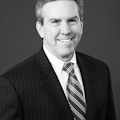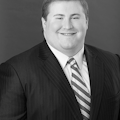Revisiting the 6 months’ salary ‘rule’
Without question, the most traditional financial planning rule clients ask us about is, “I read/heard that I need to have six months of salary in a savings account before I start saving in other ways. What do you think?”
This advice is frequently repeated, and for good reason: it’s good advice! However, it requires some caveats for dentists.
Supercar at the lube shop
The breakdown of this advice for doctors is that it fails to take into consideration the fact that 78% of Americans live paycheck to paycheck.1 Ideally, dentists do not live paycheck to paycheck. This means that, for the average American, living expenses are equal to an individual’s salary, minus taxes. Rather than telling most Americans they need to save six months of living expenses (which is underestimated), it’s much easier to tie the savings target to a clear, objective number such as salary.
The issue for doctors is the (ideally) large difference between income and expenses. For most doctors, this means that following the suggestion to save six months of income without modification can result in an excess of cash. Just like you don’t expect to find a supercar at your local lube shop, high performance careers with significant cash flows don’t always follow the same rules of financial planning as the general population.
How much to keep
We recently met with a doctor who was holding $375,000 in cash on the recommendation of his financial advisor. He had an annual income of $750,000. However, this doctor was only spending $12,500 per month.
For more conservative doctors, I recommend no more than six months of spending, rather than income, for emergency savings. For doctors with stable cash flow who are willing to accept more risk, this can be as few as two months. Rather than obsessing on a specific number, a doctor can create a range of target savings. If the savings numbers fall below two months of spending, the doctor can focus on saving to replenish savings. If the doctor exceeds six months of spending in cash savings, the doctor’s automatic savings strategy should be revisited with his or her investment advisor to be sure that any increases to income are accounted for. If the savings is not needed for the doctor’s lifestyle, these should be redirected to savings to accelerate the doctor’s path to financial independence.
Using the idea that six months of spending rather than six months of income is a more appropriate target, this doctor would have kept only $75,000 in the cash account rather than $375,000. This means that $300,000 of potential investments were held in cash, and there was no practical reason to maintain the liquidity based on the risk and needs of the doctor. Assuming the savings yields 2% and investing with an appropriate allocation would have yielded 6%, having this extra cash on hand for 20 years would cost the doctor more than $500,000 of lost savings.
Saving with someone else’s money
Another way to expand savings without keeping cash out of the market is by using a home equity line of credit, or HELOC. Although the interest is no longer deductible under the new tax code, the HELOC gives a doctor a chance to smooth out his or her cash flow in the event of an emergency. Rather than hoarding a significant amount of cash, a HELOC allows a doctor to save on a regular basis, interrupting the savings draft only if an emergency occurs.
Although the doctor may pay interest over a short period of time, the long-term growth of the invested assets more than offsets the cost of borrowing. This allows for a stress-free reserve pool, on top of the savings accumulated, to limit liquidity risk while preventing the doctor from being too conservative with cash holdings.
Reference
1. Friedman Z. 78% of workers live paycheck to paycheck. Forbes website. https://www.forbes.com/sites/zackfriedman/2019/01/11/live-paycheck-to-paycheck-government-shutdown/#3d65264d4f10. Published January 11, 2019.
Andrew Tucker, JD, CFP, CPA, and John K. McGill, JD, MBA, CPA, provide tax and business planning for the dental profession and publish The McGill Advisory newsletter through John K. McGill & Company Inc., a member of the McGill & Hill Group LLC. It is your one-stop resource for tax and business planning, practice transitions, legal, retirement plan administration, CPA, and investment advisory services. Visit mcgillhillgroup.com or call (877) 306-9780.
About the Author

John K. McGill, JD, MBA, CPA
JOHN K. McGILL, JD, MBA, CPA, provides tax and business planning for dentists and specialists. The McGill Advisory newsletter is published through John K. McGill & Company Inc., an affiliate of the McGill & Hill Group LLC. It is your one-stop resource for tax and business planning, practice transitions, legal, retirement plan administration, CPA, and investment advisory services. Visit mcgillhillgroup.com or call (877) 306-9780.

Andrew Tucker, JD, CFP, CPA, CIMA
Andrew Tucker, JD, CFP, CPA, CIMA, provides tax and business planning for dentists and specialists. The McGill Advisory newsletter is published through John K. McGill & Company Inc., an affiliate of the McGill & Hill Group LLC. It is your one-stop resource for tax and business planning, practice transitions, legal, retirement plan administration, CPA, and investment advisory services. Visit mcgillhillgroup.com or call (877) 306-9780.
